From Fields to Fleeing: How Climate Change is Uprooting Syrian Farmers in Dar’a Governorate
Yasser Chanaa welcomes us to his tent in Al-Saraya area in Dar’a where his family is among the few remaining. © UNHCR/Vivian Tou’meh
Climate change has become an undeniable reality, impacting various aspects of our lives. One of the regions with evident impact of climate change is Dar’a Governorate in Syria. The region was severely affected by the Syria crisis, and climate change is exacerbating existing challenges, pushing local communities to the brink of displacement.
Located in the southern part of Syria, bordering Jordan, Dar’a Governorate is primarily an agricultural region, known for its fertile lands and productive farms. The region has historically been an important agricultural hub, providing food not only for its own residents but also for other parts of Syria. However, climate change is threatening this vital sector and the livelihoods of the people who depend on it.
Rising temperatures, erratic rainfall, and prolonged droughts are transforming Dar’a’s agricultural landscape. The unpredictable rainfall patterns have made it difficult for farmers to plan their planting and harvesting schedules. In addition, the increasing temperatures are causing crops to wither and fail, leading to significant losses for farmers. The combination of these factors has resulted in a decline in agricultural productivity and a growing sense of uncertainty among farmers.
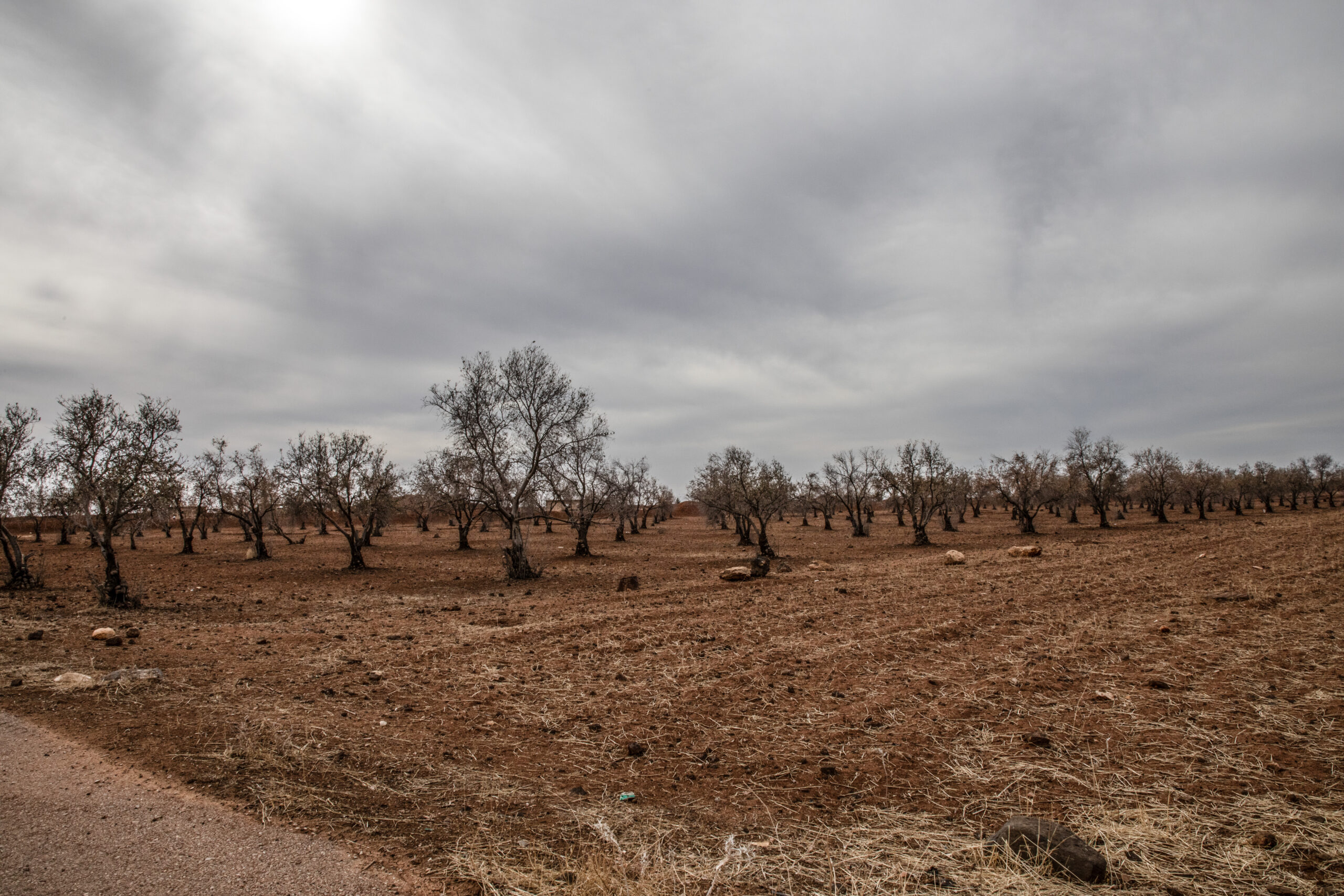
Kahil village, which used to be abundant with olive trees, is now a dry land with few trees remaining due to drought. © UNHCR/Vivian Toumeh
In Kahil village, an artesian well was established in the 1990s which the residents used to irrigate their olive farms. This well has now dried up, impacting hundreds of hectares of cultivated lands, especially olive trees.
“We used to plant olive trees, onions, and tomatoes. Due to the well’s dryness, lack of rain, and the high cost needed to provide water for trees, we plant wheat and barley only nowadays,” explains Ahmed Mohamed Hassine, a farmer from Kahil village and head of the farmers’ association in the region.
“We used to plant olive trees, onions, and tomatoes.
We plant wheat and barley only nowadays”
The loss of income from agriculture has also led to a decline in employment opportunities, in a region with a high unemployment rate already.
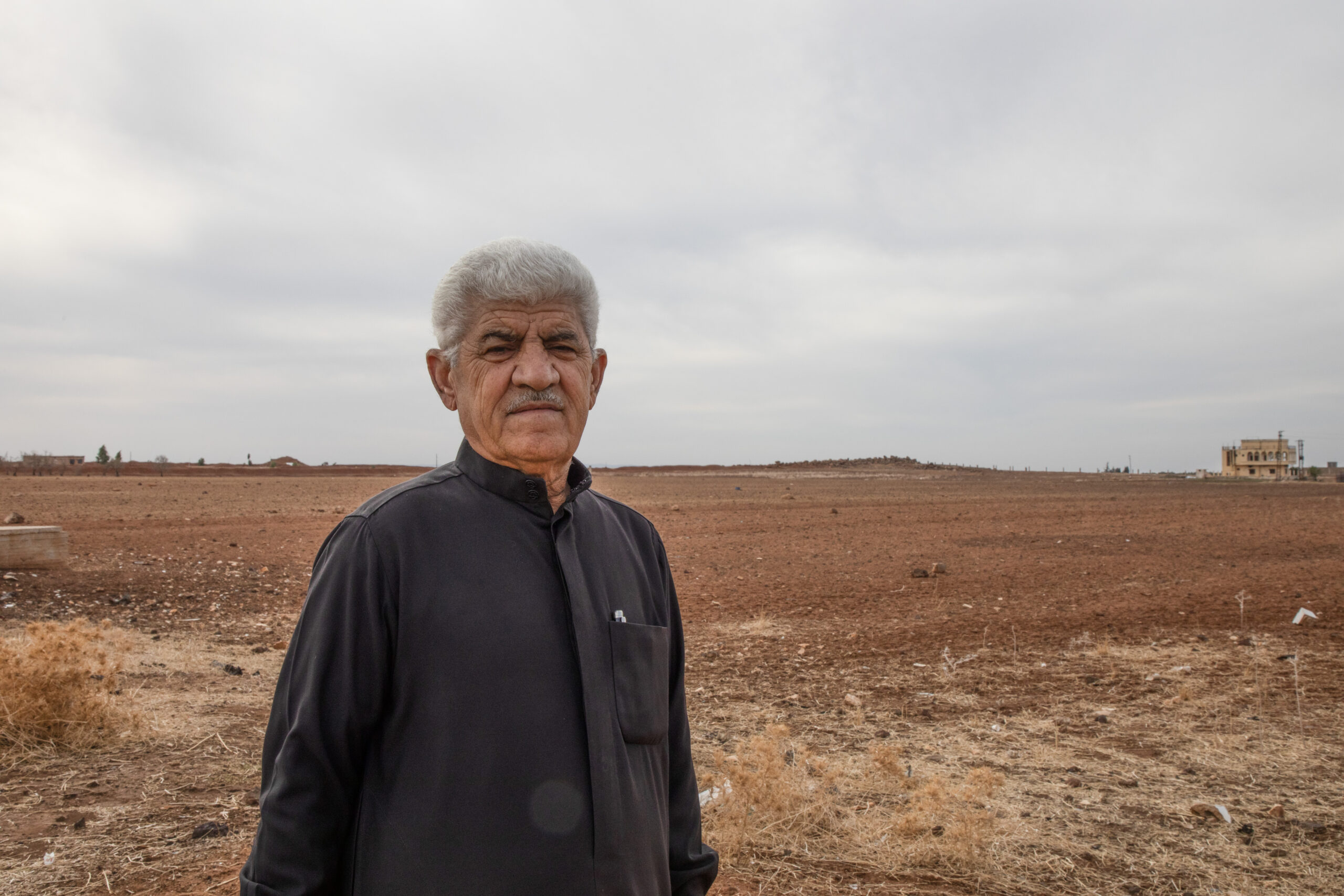
Ahmed, a farmer, and head of the farmers’ association in Kahil village says “The situation of the well is very bad with almost no water left. We need your support in installing a pumping system so we can extract the underground water. Otherwise, there is no hope left for us.” © UNHCR/Vivian Toumeh
Prolonged droughts have led to a significant decrease in water availability, with rivers and groundwater sources drying up. Farmers, who rely on irrigation for their crops, are facing immense difficulties in accessing sufficient water for their crops.
Climate-induced displacement is on the rise in Dar’a Governorate, as residents are faced with the difficult decision to leave their homes in search of a better future. Al-Saraya area is a testimony to this challenge. In this area, Al-Saraya Spring, once a prolific water source sustaining neighboring villages, has visibly reduced. In the last years, the community shrank to 100 people from 800 people that used to live near the spring.
In Al-Rabat village in southwestern Dar’a, most residents, who are farmers, have chosen to leave the region for good. Over 1,000 families have left. Despite the challenges, few poor families, including Abdullah’s, have remained.
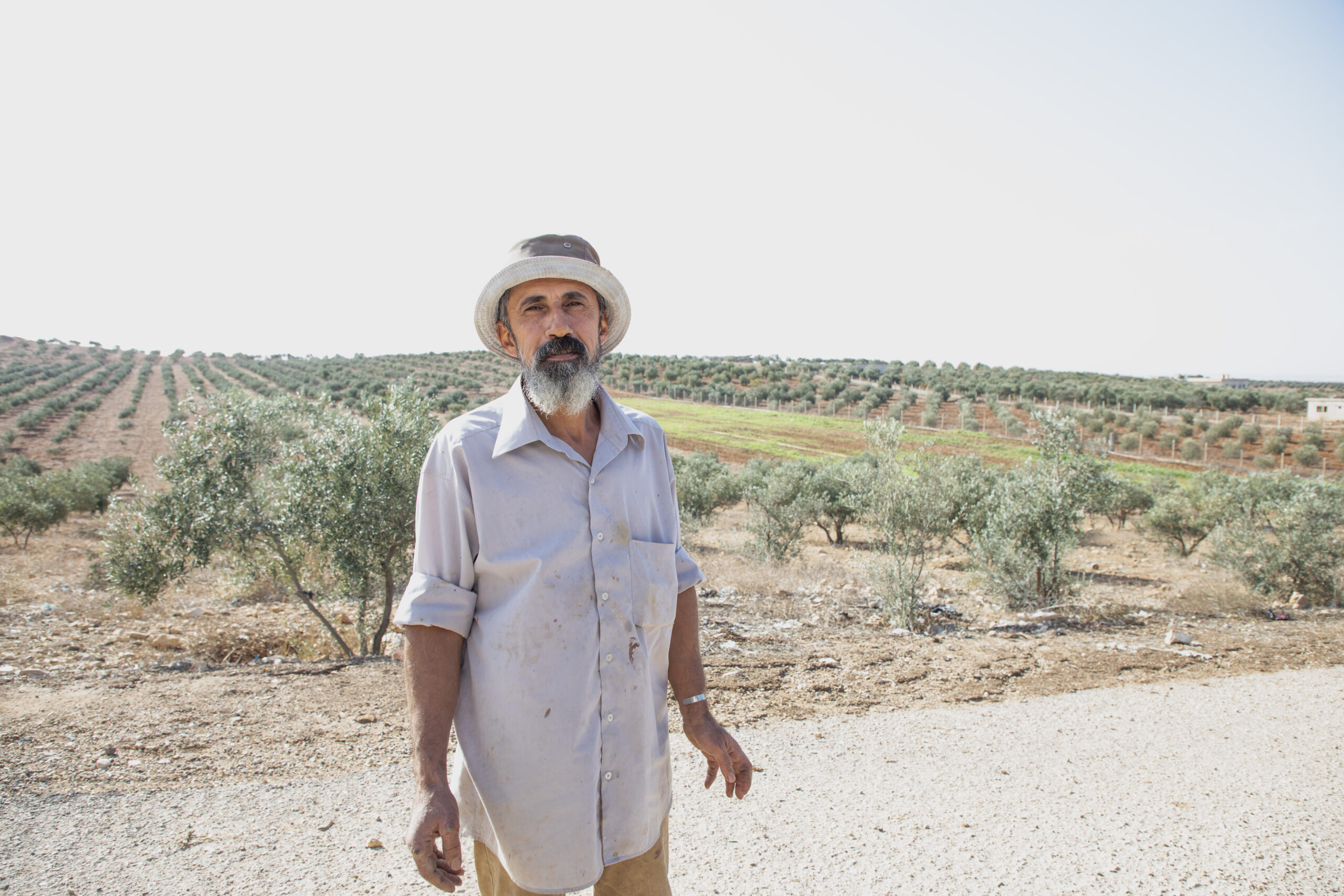
Abdullah stands in front of the land where he is working in Al-Rabat village in Dar’a. © UNHCR/Vivian Toumeh
Of his new reality, Abdullah says, “I used to harvest 30-40 tanks of olive oil, each containing 20 kilograms, from my land every year. However, now I only manage to obtain maximum 10 tanks.”
“I used to harvest 30-40 tanks of olive oil from my land every year. However, now I only manage to obtain maximum 10 tanks.”
To overcome this water crisis, Abdullah and other residents in Al-Rabat have to buy and transport water from the neighboring area of Dar’a Al-Balad to to meet their daily needs and to support their animals – an additional financial burden.
The impact of climate change has severe socioeconomic consequences for farmers and residents in Dar’a Governorate. With their main source of income disrupted, farmers are being pushed into poverty, struggling to provide for their families and meet their basic needs. The ripple effects go beyond the loss of crops and livelihoods. They are felt throughout the entire community, with increased food insecurity and economic instability.
“Most families had to leave due to drought”
“Most families had to leave due to drought and because the well is not operational anymore. The only solution to plant the land with barley and wheat and to sustain my livestock is by using a tractor for transporting water to my land. Those who cannot afford it will not be able to rely on any source of water in the area,” highlights Yasser Chanaa, 34 years old, who is among the few remaining people in the area.
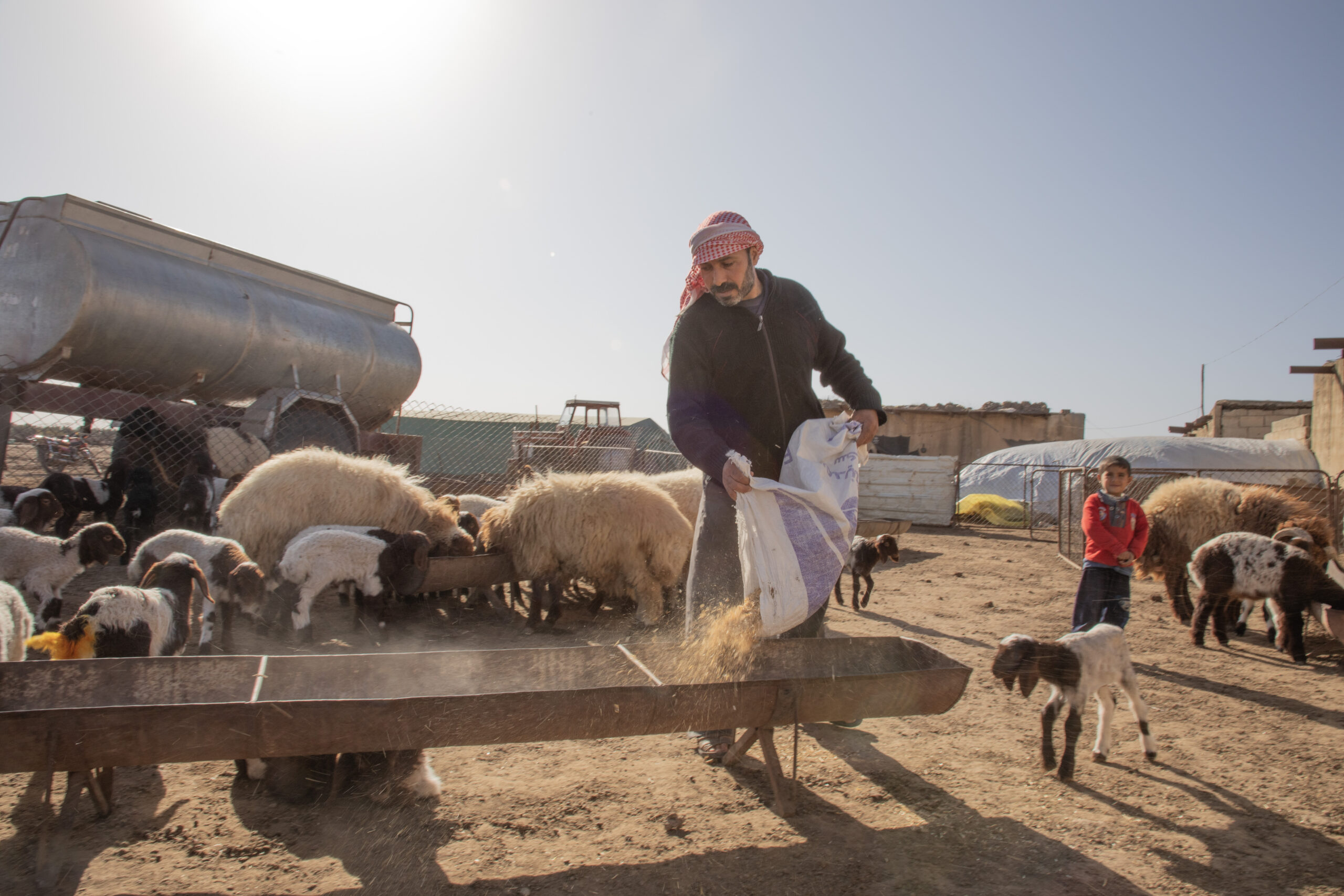
Yasser Chanaa, with his son, feeding the family herd in Al-Saraya area in Dar’a. © UNHCR/Vivian Toumeh
Other families, in the Al-Saraya area, explained how the major irrigation channels stemming from the area’s spring have also dried up. The individuals who own the land, because they depend on agriculture that relies on rainfall, have faced difficulties pushing them to move to nearby regions where they can have access to water.
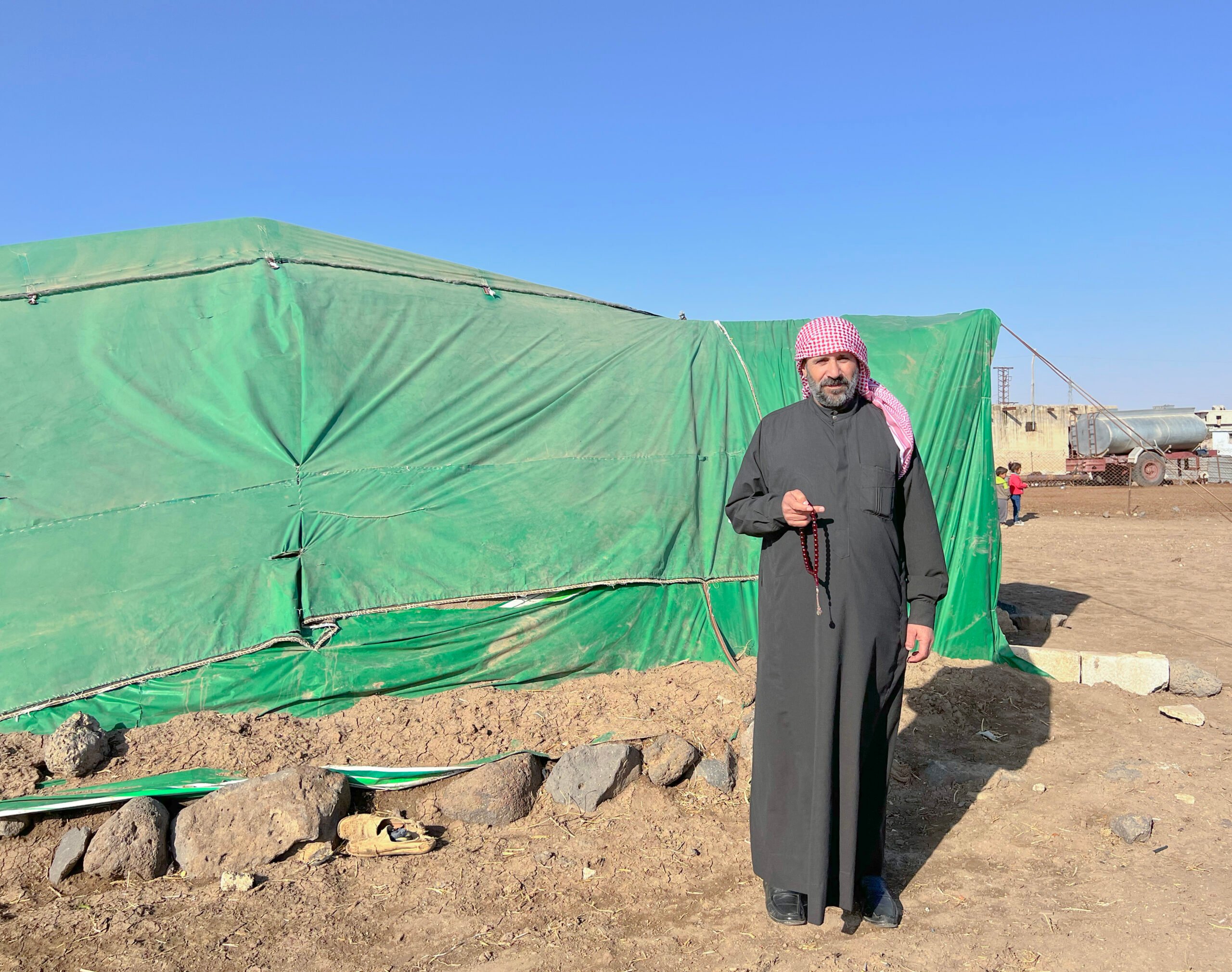
Mohamed Nasser, 53, explains the dire water situation in Al-Saraya area in Dar’a. © UNHCR/Vivian Tou’meh
Many families left, and more are leaving since the level of water in the wells is nonexistent. If there is investment to repair the well and ensure consistent water supply, people will return here,” explains farmer and livestock breeder Mohamed Nasser Awad, 53 years old.
“I opted to move with my family to a nearby village where we can have access to water. But I still come back to Al-Saraya as my extended family lives here, “adds Mohamed Nasser.
“I opted to move with my family to a nearby village where we can have access to water.”
The combination of climate change impacts, conflict, and economic instability has created a perfect storm, forcing people to flee their communities in search of safety and opportunities elsewhere.
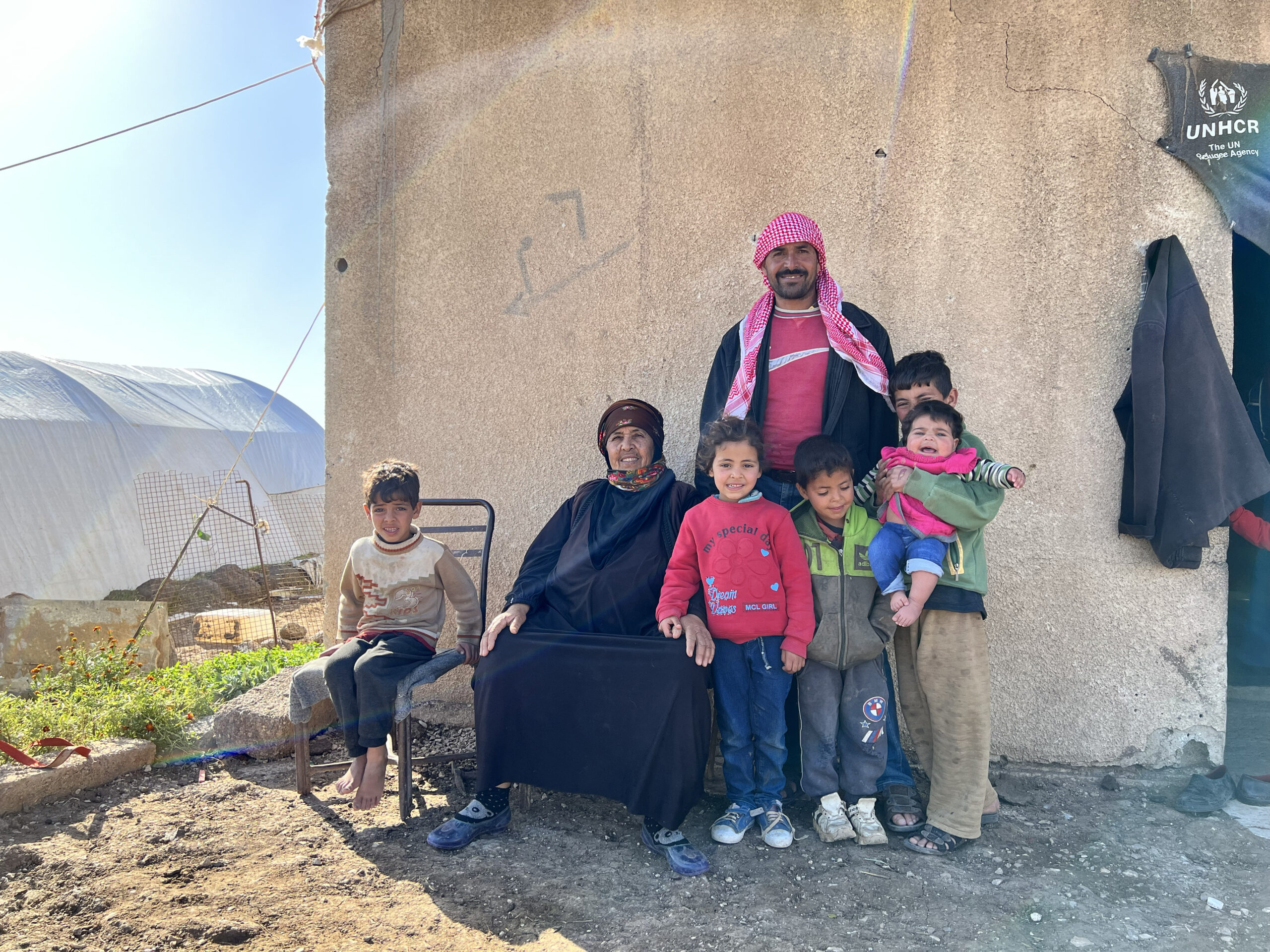
Warda Sebto, 73, with her extended family, continues to live in Al-Saraya area in Dar’a despite harsh conditions. © UNHCR/Vivian Toumeh
Warda Sebto, a grandmother of 73 years, has spent her entire life in Al-Saraya. She remembers, “We used to live in abundance. We had water and our livestock. But over the years, the water supply decreased, the rainfall stopped, and the wells dried up, causing people to migrate to neighboring areas where they have sustainable access to water.”
“This land and its people are everything to me. Even in difficult times, I have nowhere else to go. However, I hope that my children and grandchildren will have a better life than mine,” she adds.
“This land and its people are everything to me.”
Share on Facebook Share on Twitter
